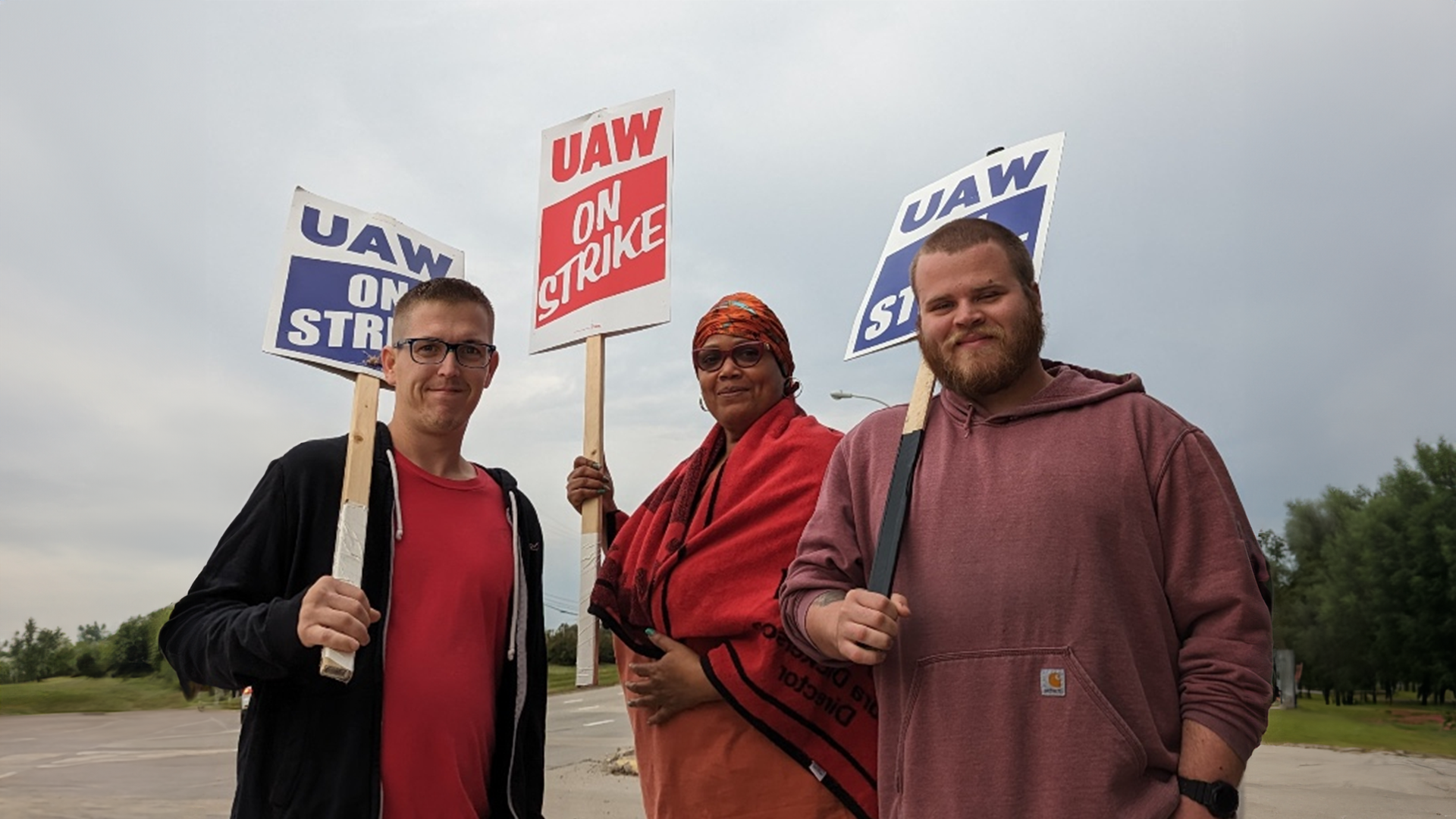
Photo credit UAW
In the on-going strike by UAW auto workers against the auto industry Big Three, one of the central objectives is to win a just transition to climate safe vehicle production for auto workers. At press time the strike continues, but the union has already won significant concessions that will contribute to a just transition. (See next story for more on what a just transition means for auto workers.)
While collective bargaining is often shrouded in darkness, the UAW has revealed to union members and the public news of what is happening at the bargaining table. In addition to negotiations over wages, hours and working conditions, a central just transition demand has already been met by one of the Big Three.
GM has agreed that all its electric vehicle and battery plants will be included in the UAW master agreement. This puts an even floor under worker conditions and prevents worker-against-worker competition leading to “race to the bottom.” It thereby reduces the incentive for the company to site new EV and battery facilities in low-wage, anti-union states in the South and elsewhere.
UAW president Sean Fain said, “GM has agreed to lay the foundation for a just transition.” Fain said GM agreed to the concession in response to the union’s threat to extend the strike to some of the company’s more profitable plants. Harley Shaiken, labor professor at the University of California, Berkeley, said, “This defines the transition to EVs. Clearly, GM’s concession on the master agreement will positively be matched by Ford and Stellantis.”